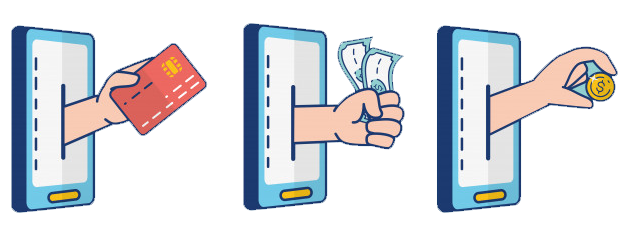
The mobile users are growing at a rapid pace, to be precise 6.8 billion. And this number is expected to reach more than 7 billion by the end of 2021. In such a digital era, mobile money has gained enough popularity and is continuing to earn more. The mobile payments have made a significant impact on the buying nature of users. To much surprise, there are almost 1.7 billion people that are financially excluded, meaning they do not have access to bank accounts and essential banking services. That’s where mobile money and agent banking comes into play. Digital payments have opened up varied horizons in the financial system to facilitate the seamless shopping experience for the users. Not only that, but mobile money app has also made it possible to include all those billions of people into the financial system.
What is Mobile Money and Agent Banking?

Mobile money is not a new concept; it was launched nearly a decade ago, to include financially excluded people. In fact, with the launch of mobile money, the agent banking simultaneously grew more into the world of finance. Agent banking and mobile money both aims to prevent financial exclusion. The term Agent banking signifies the digital alternatives of typical banking methods. An agent distribution network enables the people of rural areas, or far fledged regions, to enjoy all the financial services. These mobile money network apps help the users to control their banking transactions such as withdrawals and deposits, by making use of their smartphones. The reason why these digital platforms became popular was that firstly the mobile money app acted as a bridge to connect financially excluded people into the financial system, and secondly as it offered vast opportunities for the agent banking. But how do they work? Let’s find out.
How Does Mobile Money Work?
Mobile money is one of the most common and popular methods of the digital payment platform. It is a banking service, which uses your email or mobile number as your unique ID, to provide you with financial services. It assists the agent distributed networks to include financially excluded people in the system. Although the mobile money apps caused a significant disruption in agent banking during its initial days of launching, but today agent distributed networks leverage the full benefits of mobile money apps. It is considered as one of the most efficient methods by global financial services to connect with their audience. The mobile money app enables the user to use the money from a special kind of account known as pool account. Moreover, the app also can transact money in other bank accounts, and can serve almost like a bank account does, obviously with added capabilities.
How Does Agent Banking Works?
Agent banking is somewhat different from mobile banking. The term agent banking usually refers to the banking operations that take place outside the bank, such as ATMs, halls, tellers, and bank managers. This type of banking is more common in rural areas and the areas which are not easily accessible by banks. While mobile banking enables a user to control transactions from his smartphone, agent banking makes use of bank accounts to direct transactions of the user. Agent banking is authorized by a financial agency whose main aim is to provide essential banking operations to the financially excluded users. It is a strategy of the financial institutions to perform their banking operations anywhere to offer excellent customer care and facilitate financial inclusion.
What Is Current Scenario In Banking Sector?
Digital payment platform has evolved as a robust tool for the digital era. It started as a money transfer tool, and today caters to every other need of users. Mobile banking offers excellent services which not only include bill payments but also access to many other services like loans, insurance, savings, etc. Moreover, these mobile money apps also facilitated financial inclusions, that means people sitting far from the bank can also enjoy all types of banking services. As per a report by GSMA, the mobile money network apps are becoming more popular day by day, and a user can easily avail mobile money apps via 271 mobile app development companies. Moreover, they also revealed that these mobile money apps are now available at 91 nations which is approx 85% of the world, and surprisingly in locations where less than 20% of people have bank accounts. Not only that, but mobile money apps are also enabling young entrepreneurs to invest in mobile money apps to boost their career. Apart from the benefits of mobile money apps, agent banking is also proving beneficial for the current financial market. It is helping the banks to achieve complete financial inclusion while developing their user-base. Not only that, but the agent banking is also reaching out to several users while simultaneously reducing the marketing time related to new offers and policies. The agent distributed networks are also promoting digital platforms and cashless transactions. They are catering to the needs of all the financially excluded users, that too at a reduced cost. All in all, these agent distributed networks are simplifying tedious banking operations while optimizing the efficiency and profits of the banking industry.
What Is The Future Of Mobile Money And Agent Banking?
There is still so much to understand before moving towards a wholly digitized financial industry. The cashless market will require mass acceptability and improved efficiency through collaborations between different industry-verticals. We still need to learn a lot from a country like China, which is purely running on a cashless economy. Although the increased usage of smartphones will surely drive the current market towards mobile banking, that too, after the acceptance of mobile money apps by the global market. At present, the mobile money app dealers charge their customers based on three factors, viz. transaction in other accounts, CICO (Cash-in Cash-out) services and while opening an account. And they earn profits only if the earned revenue exceeds the total invested money. And to much surprise, the mobile money app is already making benefits in the mobile app development market. In fact, the total transaction by mobile money apps makes almost 20% of the entire financial transactions. And looking at the future, the advancements in the digital platform will surely boost the market for mobile banking. However, making profits in money mobile app market is not a piece of cake; it requires extensive capabilities. To simply put, it requires extensive marketing, sales force management, and proper systems in the exact place. So what can be done? The mobile money app providers can partner with agent distributed networks to promote growth and boost revenues. Another way is to have a mobile wallet solution to cater to your business needs. This type of mobile app can seamlessly solve all the issues related to the savings account, bill payments and many other banking services. All in all, the mobile money app providers can boost their business by identifying and leveraging the new and latest technologies.
Conclusion
Digital financial services transformed how banks used to work. It offered the users immense opportunities to make their transactions quickly and efficiently while using their smartphones. And the credit for that goes to mobile app development companies, who developed an effective platform to carry out mobile payments efficiently. However, new and advanced solutions are still required to achieve financial inclusion and extend the reach of mobile money. So, mobile money dealers should always remain in touch with an experienced mobile app development company that can cater to all their business needs. They should utilize the latest innovations of a financial mobile app development company to get effective solutions for agent management, agent circulation network fees, and much more. After all, the smart investments of the present will drive the future business and will shape your business goals.




